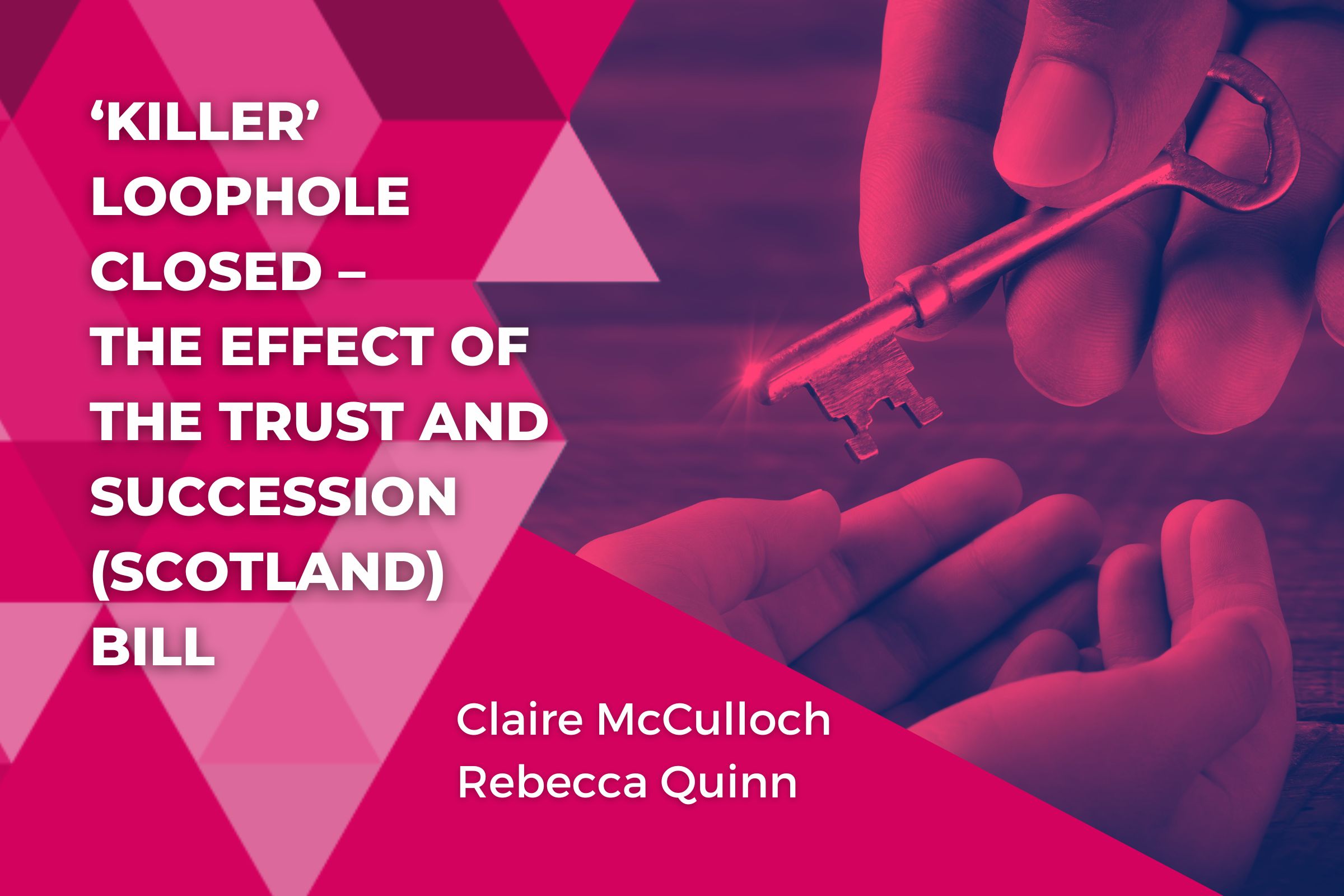Legal Guide for Attorneys
Legal Guide for Attorneys
This page is not intended to be a full brief on the responsibilities of an Attorney. It is however meant to be a Users’ Guide in order that an individual appointed and accepting office under a Power of Attorney may be aware of his or her general responsibilities.
An Attorney is really an agent representing the person appointing them. The legislation governing the position of an Attorney is set out in the Adults with Incapacity (Scotland) Act 2000 (as amended) and there are certain principles that an Attorney must follow. The Principles can be summarised as follows:-
- Any decision or action taken by an Attorney must be for the benefit of the Granter of the Power of Attorney.
- The Attorney is required to take the least intrusive or restrictive method of intervention or action on behalf of the adult.
- The Attorney is required to take into account the known past and present wishes of the adult.
- The Attorney should consult with “relevant others” (ie the nearest relatives of the adult, the primary carers, and any other appointee under the Act (for example a Welfare Guardian). It should be noted, however that the requirement to consult does not oblige the Attorney to simply follow the view of the “relevant others” (i.e. the Attorney must act in what he or she considers to be the best interests of the adult).
The Attorney should endeavour to encourage the skills, training and education of the adult.
Nowadays, the main purpose of granting a “protective” Power of Attorney is to ensure that the family of the adult do not require to be forced to resort to a Financial Guardianship. This involves Court proceedings, is long-winded, expensive and is the least favourable way of seeking to secure intervention. If an adult grants a Power of Attorney on a “protective” basis, the problems, bureaucracy and difficulties of a Financial Guardianship can be avoided and this can be a great benefit to the adult’s family, friends and professional advisers.
The Office of Public Guardian which is part of the Scottish Court Service was established in April 2001 following the passing of the Adults with Incapacity (Scotland) Act by the Scottish Parliament. They are responsible for supervising the actions of those appointed in terms of the Act to manage the property and financial affairs of adults who lack the capacity to carry out these functions for themselves. They also provide a wide range of advice and guidance together with a Code of Practice.
For more information on the Office of Public Guardian please go to their website www.publicguardian- scotland.gov.uk. We would strongly recommend that you refer to that website if you are appointed Attorney and follow the recommended Code of Practice.
An Attorney must always make clear the capacity in which he or she is acting. An Attorney who fails to make clear that he or she is acting purely as Attorney for another person may, in fact, find themselves incurring personal liability to third parties with whom Contracts are agreed. Thus, Attorneys should always make it clear that they are acting in a representative capacity on behalf of the Granter of the Power of Attorney.
An Attorney who acts properly, who complies with the recommended guidelines and Code of Practice of the Office of Public Guardian and who takes appropriate legal advice where necessary is unlikely to encounter any difficulty. The message is simple – where you have been appointed to act as Attorney, this appointment is intended to be in the best interests of the person who appointed you.
Contact our specialist Lawyers Glasgow
For legal advice in Glasgow please call on 0141 221 1919 or fill in our online contact form.
Key Contacts




Get in touch today
News & Insights
Read the latest insights from our team

Making a Will is crucial to ensure that you are able to decide who your assets will go to once you die. It is also recommended to have a Power of Attorney, and both of these can be drafted at

It is the staple of many a Hollywood film: The family gathered expectantly around the fire after a funeral to hear some dusty old lawyer read from an equally dusty last will and testament , only to be shocked to

Introduction In a bid to modernise the law on Trusts, Succession and Executors, MSPs unanimously voted to the pass the Trust and Succession (Scotland) Bill on 20th December which prevents killers from acting as an executor in their victim’s estate.
In a recent Canadian case (Pascuzzi v Pascuzzi), a father excluded his daughter from a previous marriage in his Will and left his entire estate to his new wife. After his child raised a court action, the Court intervened to

Organ Donation Week ran from 19th to 26th September this year with the objective of raising awareness surrounding organ donation and transplantation, but what does the law in Scotland say on this topic? The Legal Position The Human Tissue
Our Services
Are you looking for something else?





